As usual, it takes John Howard to cut to the chase with one pithy comment, in this instance on the vexed topic of the referendum later this year for an indigenous Voice to parliament: ‘Why are we doing this to ourselves?’ The comment by our most successful prime minister, made to journalist Janet Albrechtsen, was probably uttered more in frustration than in anger, but at its heart lies a summation of the true tragedy of this entire leftist campaign. With the Voice, we are inflicting incalculable harm upon ourselves as a community, as a unified people and as the world’s most successful ever multicultural enterprise. We are, quite literally, self-harming the nation.
And all for what?
There is simply no evidence either here or abroad that a large unelected bureaucracy scaffolded within an undemocratic legal framework can make any significant difference to the plight of individuals at the bottom of the social ladder, especially in remote townships. What’s more, despite ample opportunity to do so, those advocating for this institution have not been able to give a single credible, concrete example of what they believe the Voice can achieve that billions of dollars of taxpayers money and a veritable army of bureaucrats and organised bodies have thus far failed to. Instead, all we are given are endless platitudes about ‘listening’ and ‘healing’ and ‘understanding’ (which Australians have been doing almost religiously for decades without a skerrick of gratitude in return).
Spectator Australia contributor Nyunggai Warren Mundine put it best recently when he explained that the only credible solutions to indigenous disadvantage are education, employment, hard work and home ownership. Pretty simple. Yet these conservative, Thatcherite solutions are anathema to those pushing the quasi-mystical concepts of ‘acknowledgment’ ‘country’, ‘recognition’, etc. Isn’t it fascinating that somehow a ‘spiritual attachment to the land’ and ‘ancient sovereignty’ never translates into ‘individual property rights’?
Furthermore, with any political change there are always winners and losers. What is likely is that as many indigenous Australians will lose out under the Voice as will win from it. This is for the simple reason that Aboriginal Australians, like all people, are disparate in their needs, wants and aspirations. Empowering such-and-such an indigenous group or community at the behest of those individuals lucky enough to have a seat at the Voice table will inevitably disempower another group or community who do not. (Memo to Yes advocates: this is why, after centuries of struggle and injustices, we have settled on a democratically elected parliament where every citizen gets one vote regardless of race, religion or class as the most efficient and just form of government).
As Rebecca Weisser writes this week, many indigenous Australians view the Voice as ‘just another trick’ or even ‘BS’.
So on the benefit side of the argument there is nothing serious on offer. But on the cost, or harm, side? Unfortunately the damage already being done by the Voice is significant and will only grow worse, especially if the Yes vote succeeds. The racial division and flourishing grievance industries that now blight our everyday discourse will explode should the Voice be implemented. The great lie at the heart of the Yes campaign is that the Voice is not what the Uluru Statement clearly spells out it to be: a stalking horse for a treaty, some form of indigenous sovereignty, ‘reparations’, ‘paying the rent’ and ‘truth-telling’, whatever the latter may or may not entail. (These days ‘truth’ is subjective, untestable, malleable and politically motivated).
If there is scant evidence from abroad about the benefits of political systems that discriminate based on racial pedigree, there is an abundance of evidence of the ‘self-harm’ such policies are capable of inflicting on a nation. New Zealand is the obvious and closest example. This week, Amy Brooke chronicles how New Zealand’s Labour government with its obsessive focus on Maori-based policies has proved disastrous for the economy, for free speech and for social cohesion. After years of this nonsense, Amy opines, ‘the nation is in no mood for collective guilt’.
Yet the entire sales pitch for the Voice is precisely that: collective (white) guilt. That is the primary selling proposition and the focus of the Prime Minister’s argument; that we are guilty of inflicting great harm on indigenous Australians and this is the only way – his assertion – of correcting that error. This scurrilous claim both denigrates decades of genuine and successful efforts and costs borne by mainstream Australians to help indigenous Australians of all walks of life, as well as disgracefully absolves the Albanese government of actually coming up with workable polices in the here and now to help disadvantaged communities. ‘Ah well, everything would have been wonderful if only we’d had the Voice,’ will be the excuse from Labor for future years of chronic failure.
With any story of self-harm there is a sense of futility, of unnecessary waste, of lost opportunity and of stupidity. The tale of the Voice is no different, although on a much greater scale. Those who got us to this point may have been driven by honourable motivations, but equally it is clear that lurking behind the Voice is a hardcore communist agenda and leftwing power grab driven by a loathing of democracy and fuelled by critical race theory and identity politics.
Got something to add? Join the discussion and comment below.
Get 10 issues for just $10
Subscribe to The Spectator Australia today for the next 10 magazine issues, plus full online access, for just $10.
You might disagree with half of it, but you’ll enjoy reading all of it. Try your first month for free, then just $2 a week for the remainder of your first year.


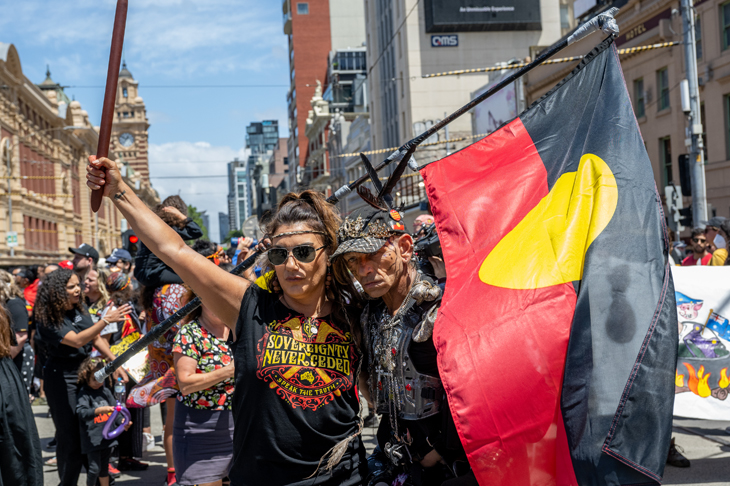
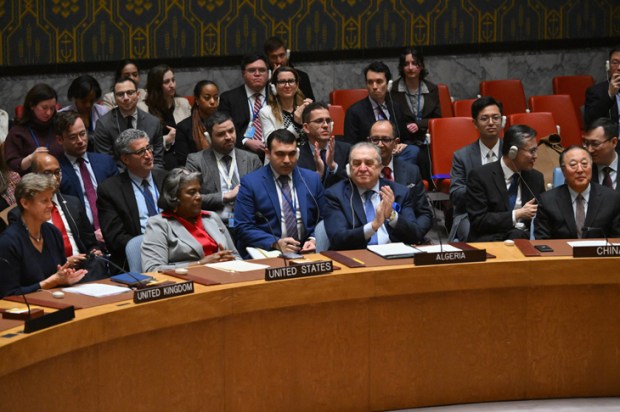
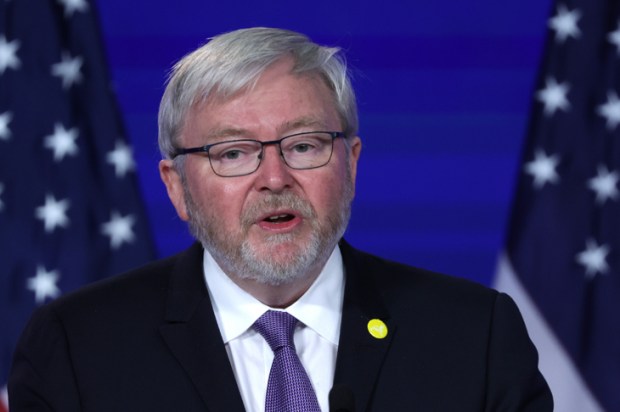
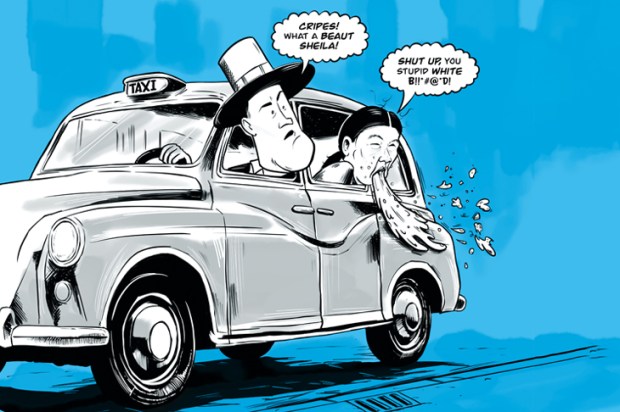
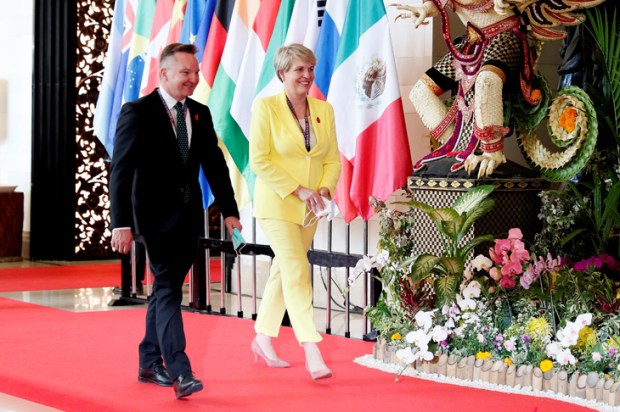
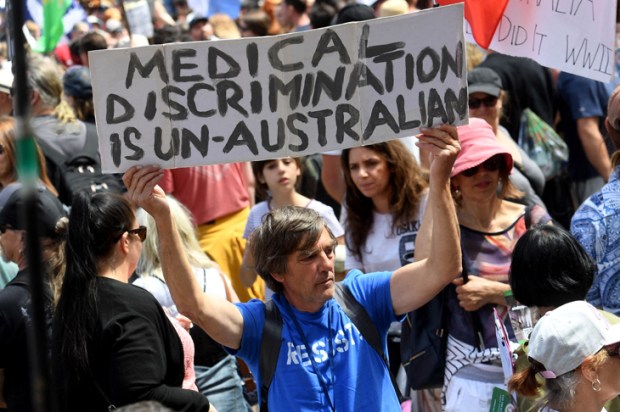
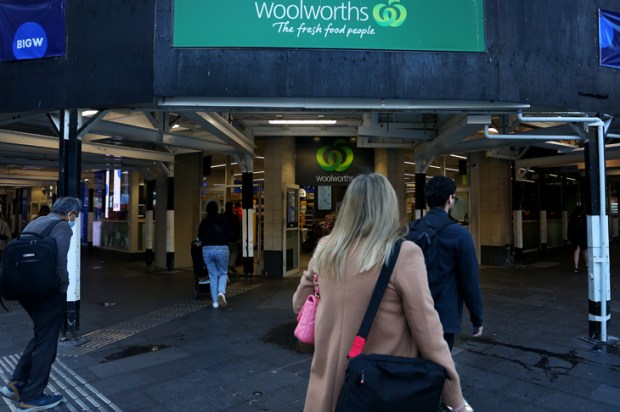






Comments
Don't miss out
Join the conversation with other Spectator Australia readers. Subscribe to leave a comment.
SUBSCRIBEAlready a subscriber? Log in